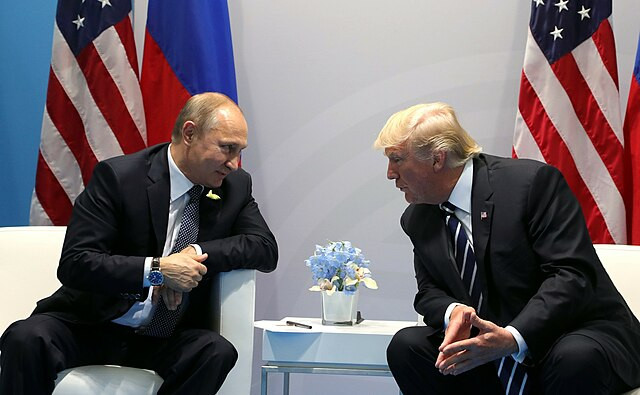Russian forces have made one of their most significant advances in eastern Ukraine in the past year, pushing up to 10 miles into the Donetsk region just days before U.S. President Donald Trump is set to meet Russian President Vladimir Putin in Alaska.
Ukraine's DeepState war map showed Russian troops advancing in two prongs near the coal mining town of Dobropillia, threatening to encircle the key Ukrainian-held towns of Kostyantynivka and Pokrovsk. The map indicated recent gains near three villages along a frontline where Kyiv's manpower shortages have left vulnerabilities.
"The situation is quite chaotic, as the enemy, having found gaps in the defence, is infiltrating deeper, trying to quickly consolidate and accumulate forces for further advancement," DeepState said on its Telegram channel.
Ukrainian army spokesperson Andriy Kovalov told Interfax-Ukraine that Commander Oleksandr Syrskyi had ordered reinforcements to "detect and destroy enemy sabotage groups that penetrate the line of defence." Kovalov said Russian forces had attempted 35 assaults in recent days, suffering heavy losses, while moving in small groups to bypass Ukrainian strongpoints.
The Institute for the Study of War (ISW) said Moscow's push was "likely timed for pressure" ahead of Friday's U.S.-Russia talks, noting similar offensives in 2014 and 2015 before major negotiations. Russian units have reportedly reached the Dobropillia-Kramatorsk T0514 road, with infiltration groups spotted near Dobropillia itself.
Geopolitical analyst Joni Askola wrote on X that Russia's breach was "real, risky, and timed for pressure," adding that while it is not a collapse, "it must be stopped before it grows." The Azov Corps of Ukraine's National Guard said on Facebook that it had taken up defensive positions in the Pokrovsk sector to counter the push.
Former Kremlin adviser Sergei Markov called the advance "a partial collapse in the front" and "a gift to Putin and Trump during the negotiations," suggesting it could pressure Kyiv into ceding parts of Donetsk. Ukrainian President Volodymyr Zelenskiy has rejected any peace deal involving territorial concessions, insisting on a "just" settlement.
European leaders issued a statement Tuesday declaring that "borders cannot be changed by force," underscoring support for Kyiv. The declaration, not signed by Hungary's Prime Minister Viktor Orban, backed Trump's efforts to seek an end to the war but said "meaningful negotiations" should begin only after a ceasefire or a substantial reduction in hostilities.





